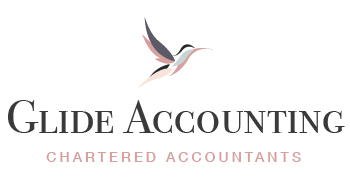
What are Bucket Companies?
And how can they benefit you?

-
A bucket company is one that can be beneficial for business owners who are looking to protect their profits and minimise the amount of tax they pay. This strategy involves setting up a corporate beneficiary, also known as a ‘bucket company’ to receive distributions from a trust of some or all of the profits.
Bucket Companies are frequently utilised by business owners who hold shares in their business through a trust. When the business generates profits, these profits are initially distributed to individual beneficiaries (the owners) in a manner that optimises their individual marginal tax rates. Any remaining profit is then allocated to the bucket company, which is taxed at a lower rate than the individual’s marginal tax rate.
The bucket company is particularly useful for high income business owners looking to accumulate capital. One of the main benefits of using a bucket company is that it is taxed at 30% or 25% for base rate entities (see below). This is significantly lower than the highest individual marginal tax rate of 45%.
-
For a company to qualify as a base rate entity and receive the lower 25% tax rate, no more then 80% of its annual income can be base rate entity passive income (BREPI).
BREPI includes various types of passive income such as dividends, franking credits, non-share dividends, interest, rent and royalty payments, capital gains, income from partnerships or trust distributions. This essentially means at least 20% of the company’s income must be ‘active’ in the sense that it is derived from business or trading activities.
-
A bucket company could save you thousands of dollars in tax each year. However, it’s important to note that when distributing to a bucket company, the cash needs to follow as well. This means that the Bucket Company needs to actually receive the cash, otherwise it raises Division 7A issues.
Division 7A of the Income Tax Assessment Act 1936 (Cth) is an anti-avoidance provision that prevents companies from supplying benefits to shareholders that are not taxed. The provision aims to deem these benefits as dividends and make the benefit a taxable supply.
-
To get the money out of a bucket company, you can pay dividends to the shareholders from the company.
In conclusion, a bucket company strategy can be a highly effective way to protect your profits and minimise your tax. However, it’s not a straightforward process and requires careful planning and expert advice.
HOW DOES A BUCKET COMPANY SAVE YOU MONEY?
To illustrate how a bucket company works, let’s use an example of a business earning $500k in annual profit. Suppose that all shares in the business are owned by a trust and the trust has three beneficiaries: a husband, wife and a bucket company.
If the trust distributes $250K each to the husband and wife, they will pay $83,167 in tax each and take home $333K after tax between them both.
Alternatively, if the husband and wife would like to invest some of the profits of the business, they could distribute $180K to themselves and distribute the remaining $140K to the Bucket Company. They now would each pay $51,667 in tax, while the company would pay $42,000 in tax on the remaining amount (assuming a 30% corporate tax rate). The total take home between the husband, wife and company is now $354K after tax.
The Bucket Company can now use this $98,000 to invest it into shares, loan it out, purchase investment properties, etc. The couple also save approximately $21,000 in tax that year from distributing the surplus to the bucket company.
Now consider if the couple are close to retirement, their cost of living is lower, or they simply wish to make larger more aggressive investments. This year they distribute $120K to themselves and the remaining 260K to the bucket company. They would each pay $29,467 in tax while the company will pay $78,000 in tax. The total take home between the husband, wife and company is now $363K after tax.
The company now has $182,000 at its disposal for investments and the couple have saved over $30,000 this year in tax had they just distributed the income to themselves individually.
Book an advisory session to discuss your options!
By booking an advisory session with Vicky, we can establish what strategy and structure works for your company and what steps can be taken to establish the best tax outcomes for your business!




